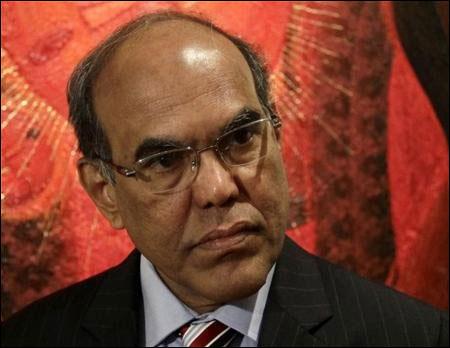Photographs: Reuters Manojit Saha in Mumbai
It was not 2008 - the year of the global financial crisis - but 2012 that was "the most challenging year" for Reserve Bank of India (RBI) Governor Duvvuri Subbarao.
In his new-year communication to his colleagues at RBI, he said: "Many of you may be surprised by my saying this; you would all think I would have found my entry into RBI in 2008, barely days before the global financial crisis erupted, as the most daunting phase of my career. Sure, the crisis was big; sure, I was a greenhorn."
But, Subbarao says, the crisis time was uncertain the policy directions were quite clear. "Judgement was required, not so much on the precise content of the policy but on the timing and communication," he adds.
RBI's task was made more difficult by exchange rate volatility, as the rupee swung wildly during the year - fluctuating by over 18 per cent - to hit a life-time low of nearly 58 against the US dollar.
Subbarao, who got a two-year extension in 2010, would complete his five-year RBI term in September.
He also outlined three focus areas to make RBI a value-added public institution going ahead. These are making the central bank a knowledge-driven institution; making it an institution based on ethics; and demystifying it to spread awareness among people on its role.



article